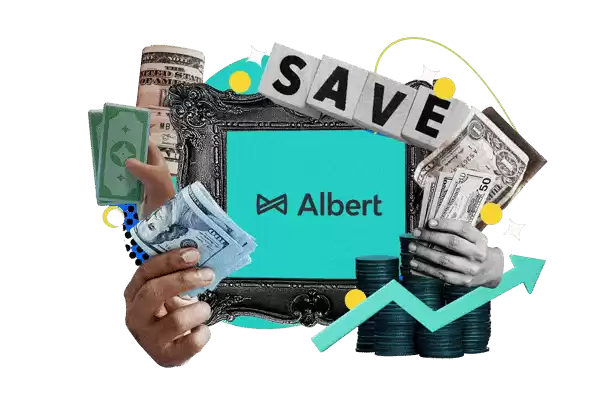One of the last places you would think you’re wasting your hard-earned money is the bank. Overdraft fees, minimum balance fees, lost card fees, maintenance fees, and the list goes on. One thing to remember: Don’t pay fees unless absolutely necessary.
Banks charge so many unnecessary fees simply for holding our money. It seems like we can’t do much about it because, while I guess you could get by without a bank account for some time, not having one would make things much more difficult.
Bank fees are a common way you’re wasting money without even realizing it because they tend to be $7 here or $3 there. In fact, the average cost of checking account fees over a decade totals almost $1,000, according to a recent study.
It doesn’t seem like a lot, but those amounts do add up. Even though some fees can’t be avoided, the good news is that many of them can be if you learn how to avoid bank fees once and for all.
How To Avoid Bank Fees
Stop throwing your money away and keep more of it in your wallet with these 4 tips to avoid paying those annoying bank fees.
1. Look into a credit union
Banks make their money by overcharging you for their services and loaning money at high-interest rates. This is something you won’t see with credit unions. Although they offer the same type of services, their structures are very different.
There are two key differences between big banks and credit unions that can make credit unions the more favorable choice for banking:
- Credit unions are not-for-profit institutions. Unlike banks, credit unions do not pay dividends to shareholders, so their primary goal isn’t to take your money. As described by bank analyst Nancy Bush, “They [customers] treat banking like an electric utility where if you flip the switch it has to be there for you. But the truth is banking is a business that aims to makes profits for shareholders.”
- Credit unions are member-focused. The primary purpose of credit unions is to serve their members. These institutions are financial cooperatives, meaning they are owned and operated by their members — you! When you join a credit union, you actually become a partial owner with a say in how the institution is run.
For these reasons, credit unions will not charge the same service fees as banks. As an added bonus, as not-for-profit-institutions, credit unions are exempt from paying state and federal taxes meaning they can offer you better rates on loans and higher interest on savings accounts.
2. Get cash back when you’re out
Avoid ATM surcharges by planning ahead and withdrawing cash before you go out. If you’re already out, choose the cash back option when you buy something in a store or make a small purchase like a piece of candy to get the cash back. Some banks will reimburse you up to a certain amount in ATM surcharges but why pay to take out your own money in the first place?
We’re living in the digital age where people are constantly on their phones and there’s an app for just about everything even getting cash back for shopping online by sites like Rakuten and Dosh.
Banks are no different. Many financial institutions have apps with a feature that will tell you the location of the nearest branch or ATM for you to withdraw cash. What could be an extra few minutes of travel time could be worth those fees charged for using out-of-network ATMs.
3. Opt-in for electronic statements
Sometimes banks will charge a fee for mailing you paper statements every month. Although the fees are minimal, remember that even small amounts of money can add up. When fees are assessed in small increments, people tend to be less concerned about them which allows banks to cash out big time.
Log in to your bank account and change your settings to receive electronic statements to avoid fees for receiving paper statements by mail.
It saves you money and also helps the environment at the same time — win-win!
4. Opt-out of overdraft protection
In 2010, a law was passed that prohibits banks from charging overdraft fees unless the customer affirmatively consents, or “opts in” to the overdraft protection program. If you want to avoid crazy overdraft fees, decline that overdraft protection. This can get a little confusing and misleading because when you hear “overdraft protection” you think it’s a program that will, well, protect you from overdrafting, right?
Wrong.
If you choose to opt-in to overdraft protection, the bank will actually allow the transaction and then charge you a hefty overdraft fee. With most big U.S. banks charging at least $35 per overdraft, according to a recent Pew research, and this can add up. However, if you do not opt into the program, the transaction will decline when the purchase exceeds your account balance.
This could be a little embarrassing, yes, but you won’t be charged any extra fees. If the thought of having to take the walk of shame back to the aisle to return your items really worries you, always keep a little bit of cash on you just in case. You can also look into banks that let you overdraft immediately in order to avoid any fees.
The Bottom Line
Saving money is hard enough these days without these big banks reaching into your pockets. Keep your coins where they belong by staying one step ahead and avoiding those unwanted bank fees. The savings can help you get out of debt faster and stay on top of your financial goals for the new year.
What are some common bank fees you’ve been charged? How do you avoid bank fees?
- Get spotted up to $250 without fees
- Join 10+ million people using the finance super app
- Banking with instant discounts on gas, food delivery, groceries and more
- Start investing, saving, and budgeting for free









